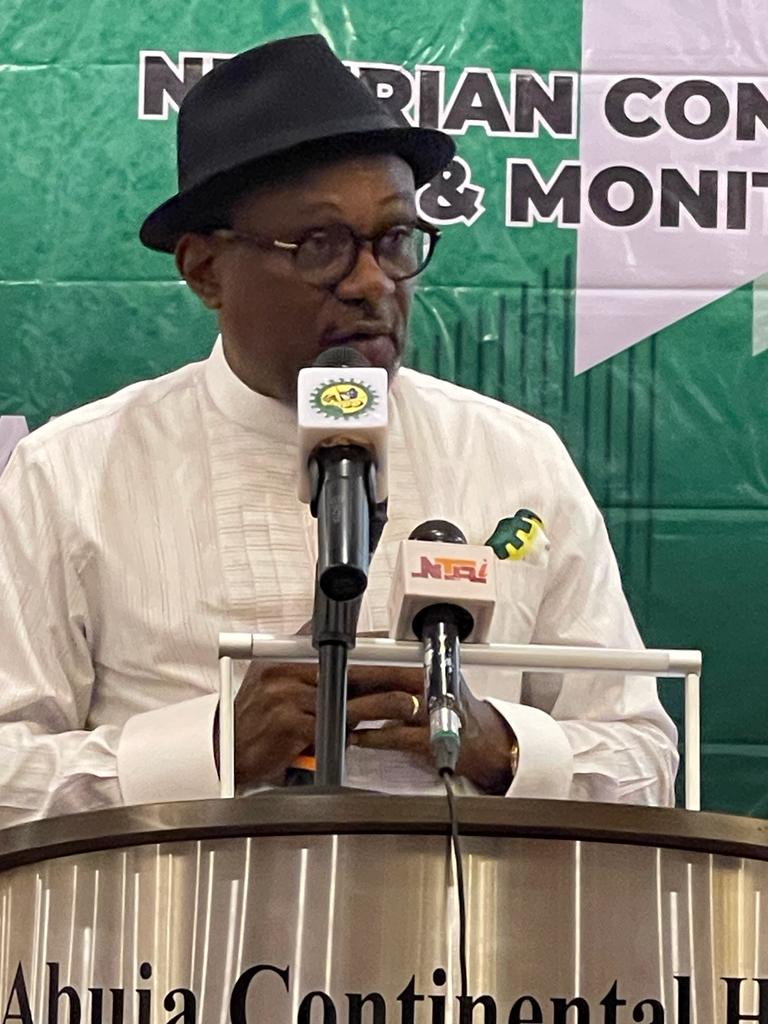Oil Theft Not Only Reason for Poor Out – NCDMB Boss, Wabote
The Executive Secretary of the Nigerian Content Development and Monitoring Board (NCDMB) Engr. Simbi Wabote has said oil theft is not the only reason Nigeria has suffered from poor output in recent times.
This was just as he blamed the country’s poor legal system on the inability of the board to take some drastic actions against those sabotaging the oil and gas industry.
He said operators take advantage of the delay in the administration of justice adding that this compels his organization to prefer the Alternative Dispute Resolution mechanism.
Wabote, while raising the alarm over violations of the Content Act by under-remitting taxes due to the government, told online publishers at a breakfast workshop in Abuja Tuesday morning that the indigenous operators are sabotaging the system that brought them up.
He said: “We fought for you but you now sabotage the oil economy, accusing them of harbouring a sense of entitlement.
Wabote also said the culture of ‘man knows man’ is being used to justify their unlawful acts.
He said the indigenous operators try to save costs and care for profit more than national interest. “They want to be exempted from the tenets Content Act. We have made it clear that the law is for all.”
Wabote said it is wrong for a local contractor to win a job and employ 90 per cent expatriates, thereby causing job loss to Nigerians.
He accused them of project execution without getting approval, adding that they also use workers not registered in the expertise ledger
He said: “They find it difficult to pay the one per cent levy stipulated by the Act. That is why the EFCC (Economic and Financial Crimes Commission) is now after them. They call to accuse me of sending the EFCC after them”.
The ES said Nigeria has moved from three per cent local content value in the oil industry to 54 per cent.
He warned that if indigenous operators don’t arrest the growth path by undermining the regulatory system, Nigeria will hit the 70 per cent target set by the Board.
On divestment by oil majors, Wabote said there is nothing to fear and that the international oil companies (IOCs) were not fleeing Nigeria but only responding portfolio rationalization, a global trend in the sector.
He it is important to understand this scenario and he outlined the advantages and disadvantages so far.
He disclosed that said so far, 60 per cent of domestic gas and 15 per cent of crude oil are being produced by indigenous producers.
He explained why the IOCs were divesting in the first place, the ES said they want to concentrate on offshore areas. “Nigerians should not fear. The IOCs are not running away. They are only doing portfolio rationalization. It is not in Nigeria alone.
The IOCs carry out this exercise anywhere that profit falls below a particular threshold.”
He said the local players make more profit out of such divested areas. “Thus, there is no need to fear. It is common in the industry. Even in the Gulf of Mexico, it has been done.”
He explained the concept of red and blue waters. Red water, he said, is used in the industry to indicate shallow waters where all manner of sharks do operate.
There is always blood in such waters and the water turns red. But in deep waters, small fishes do not get near, so few fishes are there and the water is always blue because there are no attacks.
Thus, only few players are in the offshore. Some wells are 2km beneath the surface. No diver gets near that depth because they cannot survive the pressure there. Some are even 3.5km deep. It’s only the IOCs that have the kind of fund and tech needed to operate in such waters, he tutored the newsmen.
On risks of divestment to Nigerians, he said tax is dropping. “The Indigenous producers don’t like to pay tax. It raises the inquiry or concerns of; where is the tax threshold; Is it higher with IOCs and if so, why?”
He said the presidency has seen this and has taken action. “They will identify the problem and fix it.”
He pointed at some trends and how indigenous companies such as Seplat, Aiteo, etc, have snapped up some oil wells from the IOCs, and the impact tis has had on the industry.
“Divestment has paid off in the area of boost in production. For instance, an indigenous producer has increased the production it inherited from 20,000 bpd to 75,000. In Nembe Creek, AITEO has increased from 30,000 to 80,000 bpd in Nembe. This was before the pipeline attacks came much harder. Oando is to grow 900m reserves after acquisitions it made.”
He admitted that there is crude oil theft, massive pollution, illegal refining activities at the shallow waters to add to the pressure on the IOCs to move away from the shallow waters to the deep blue waters.


